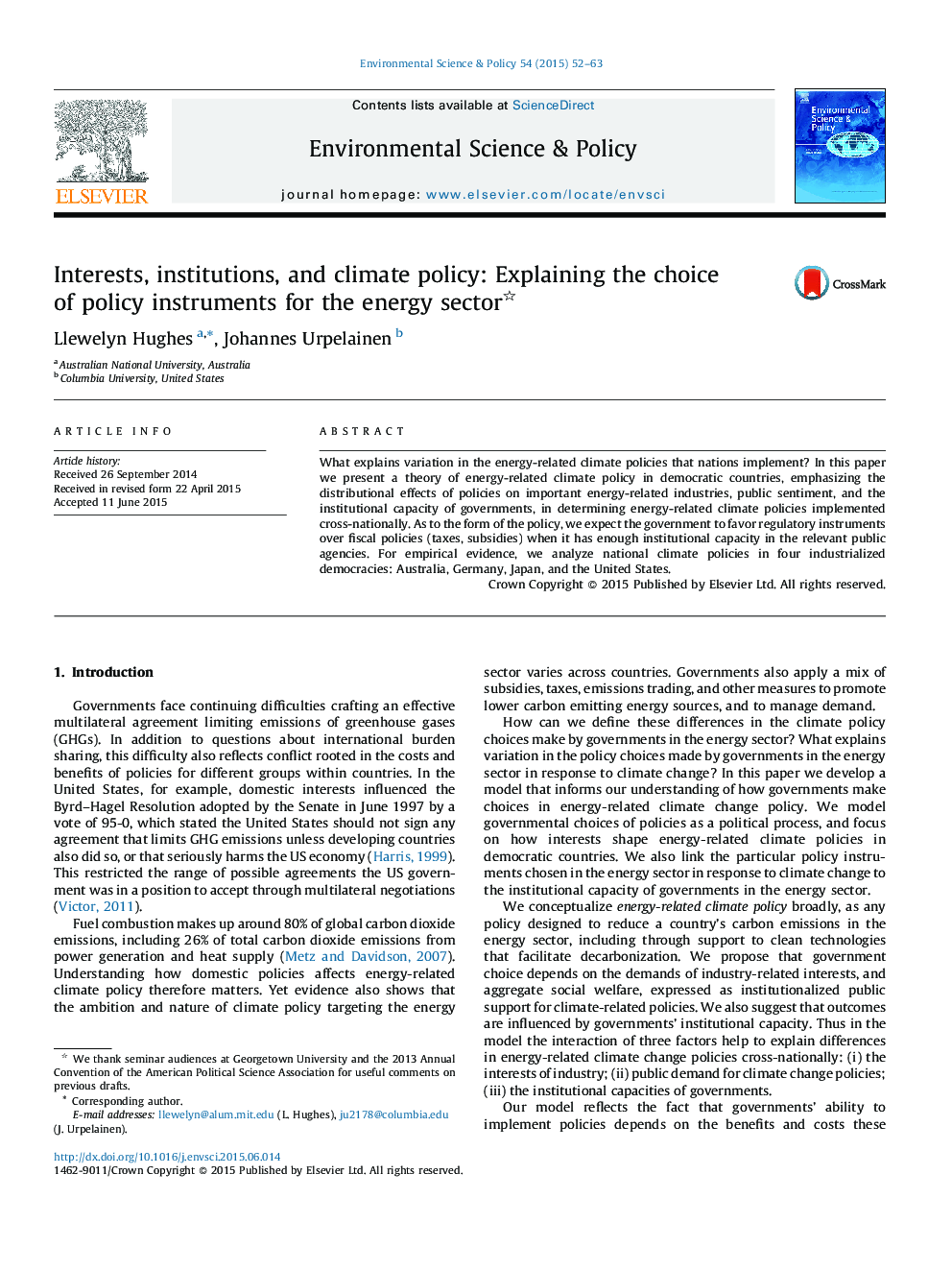| Article ID | Journal | Published Year | Pages | File Type |
|---|---|---|---|---|
| 7467170 | Environmental Science & Policy | 2015 | 12 Pages |
Abstract
What explains variation in the energy-related climate policies that nations implement? In this paper we present a theory of energy-related climate policy in democratic countries, emphasizing the distributional effects of policies on important energy-related industries, public sentiment, and the institutional capacity of governments, in determining energy-related climate policies implemented cross-nationally. As to the form of the policy, we expect the government to favor regulatory instruments over fiscal policies (taxes, subsidies) when it has enough institutional capacity in the relevant public agencies. For empirical evidence, we analyze national climate policies in four industrialized democracies: Australia, Germany, Japan, and the United States.
Related Topics
Physical Sciences and Engineering
Energy
Renewable Energy, Sustainability and the Environment
Authors
Llewelyn Hughes, Johannes Urpelainen,
